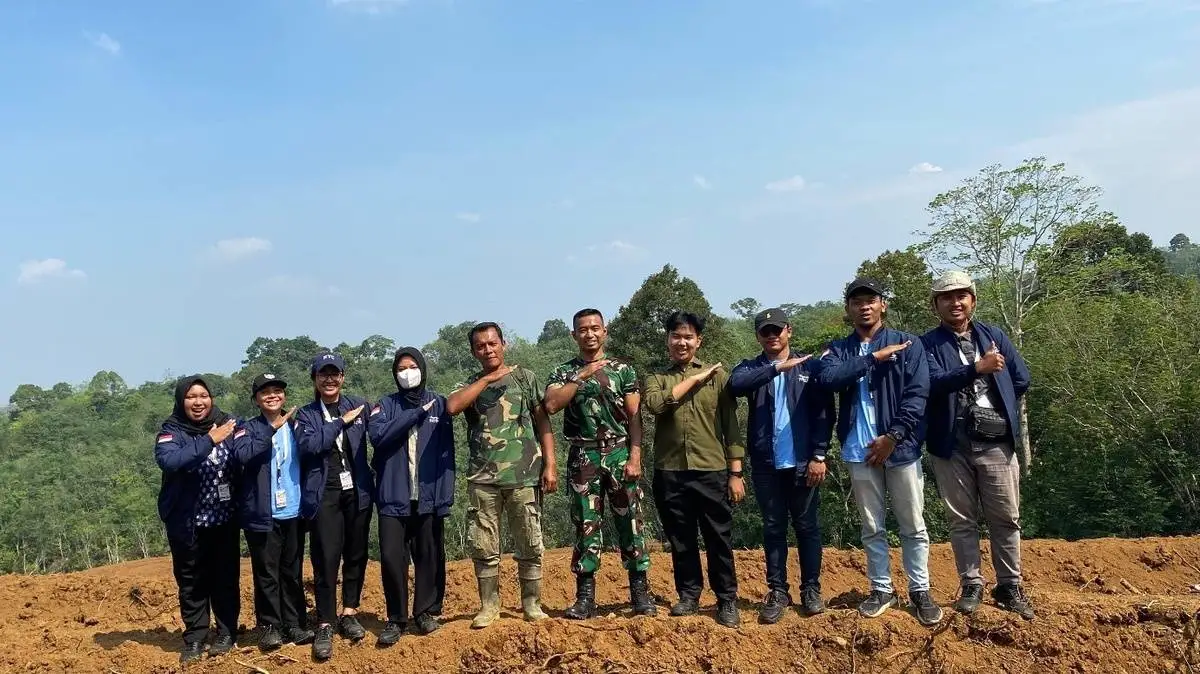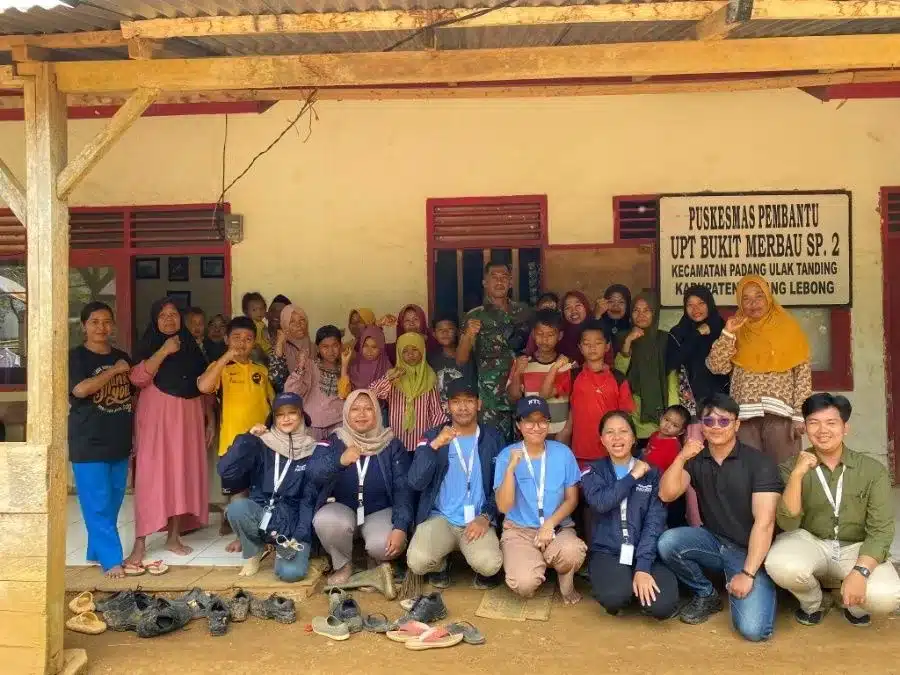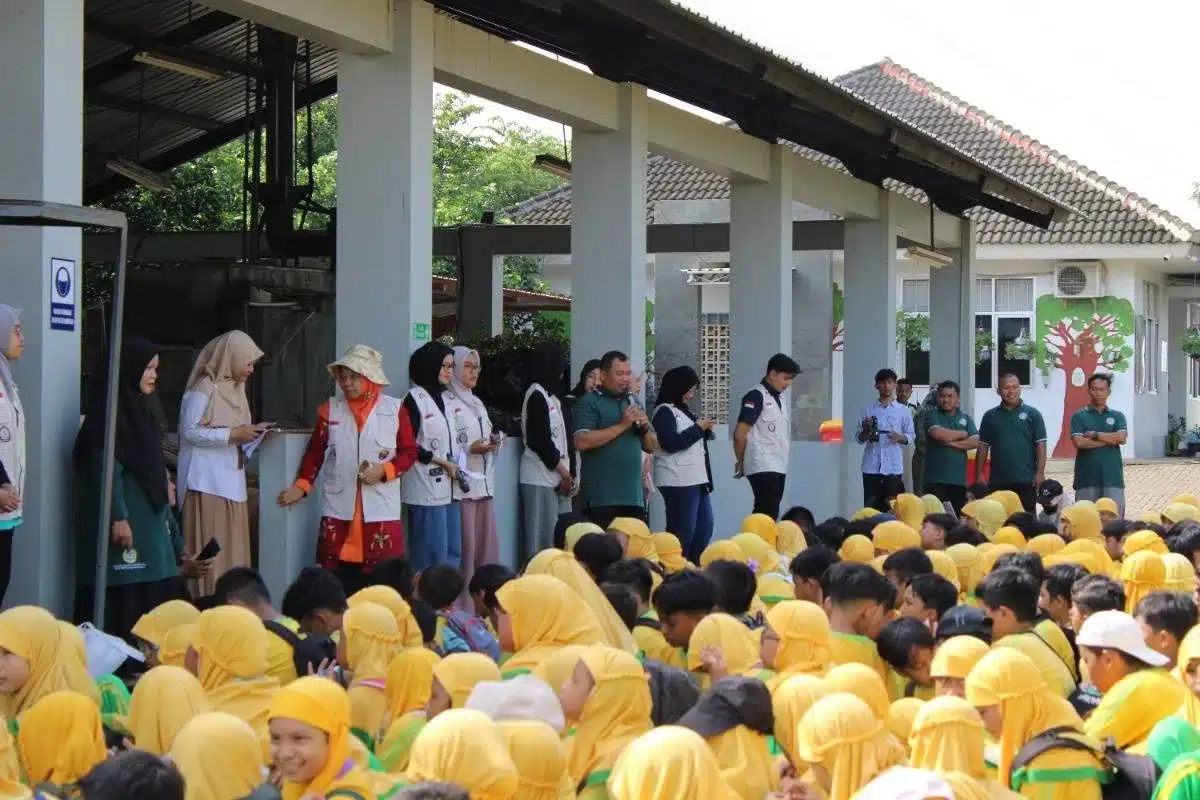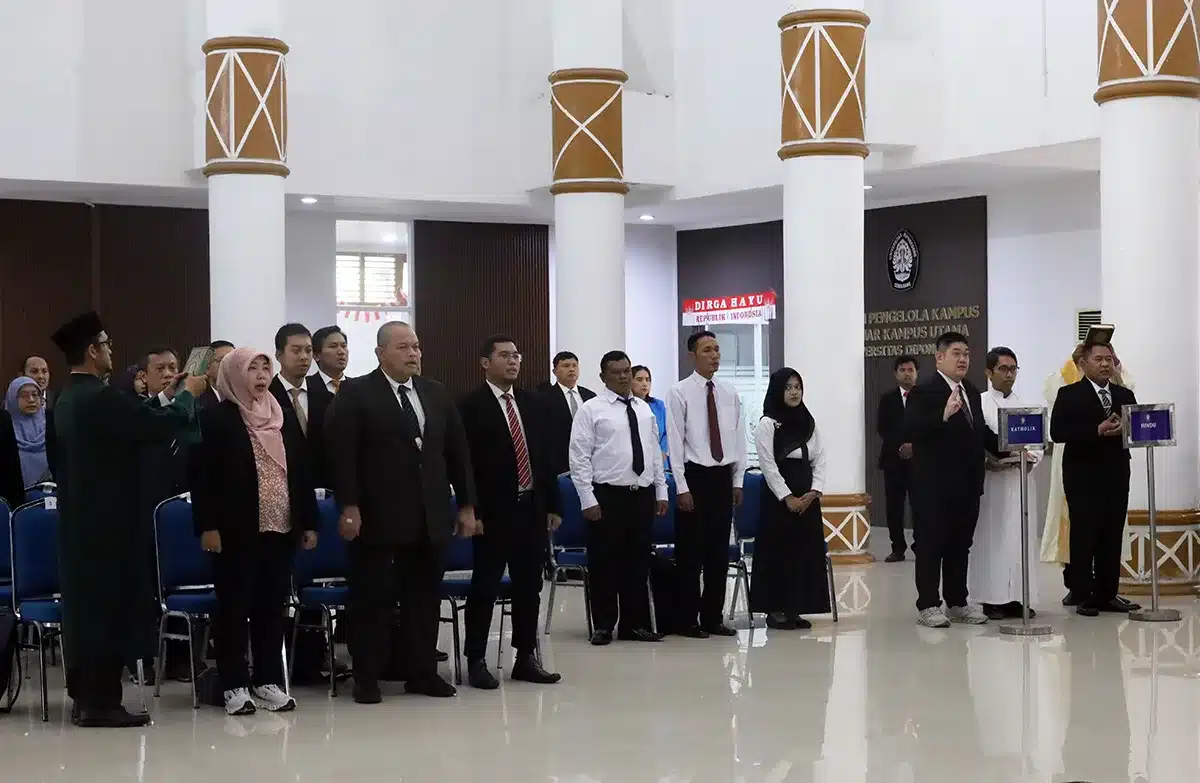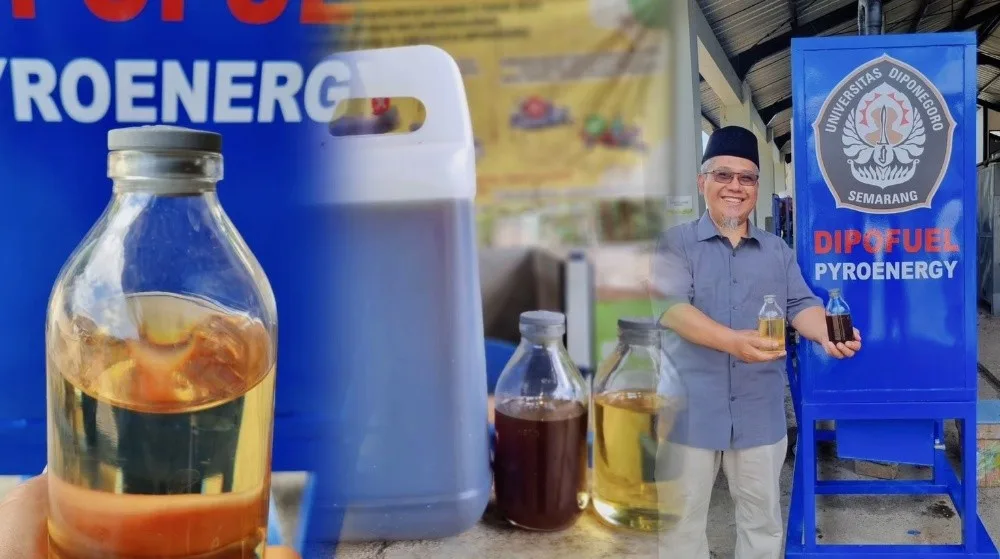UNDIP, Semarang (April 17) – The Faculty of Economics and Business of Universitas Diponegoro (FEB UNDIP) once again demonstrated its commitment as an academic institution actively contributing to shaping the direction of national development. This commitment was reflected in the trust shown by the Regional Representative Council (DPD) of the Republic of Indonesia, which appointed FEB UNDIP as the host of the Focus Group Discussion (FGD) held by Committee IV of the DPD RI. The discussion focused on formulating recommendations for the Government Work Plan and considerations regarding the Macroeconomic Framework and Fiscal Policy Guidelines (KEM-PPKF) for the 2026 State Budget (RAPBN).
The FGD took place in the Dean’s Meeting Room of the Faculty of Economics and Business UNDIP in Semarang and was attended by the leaders of the DPD RI, members of Committee IV, representatives from the Jawa Tengah Provincial Government, and UNDIP academics.
In his opening remarks, UNDIP Rector Prof. Dr. Suharnomo, S.E., M.Si., expressed his gratitude for the trust placed in UNDIP—particularly the Faculty of Economics and Business—as a partner in national policy discussions. He affirmed UNDIP’s readiness to play a key role in the development of Jawa Tengah and Indonesia through collaborative approaches and tangible contributions across various fields.
“Thank you to the DPD RI for their trust in UNDIP. We are honored and called to take on this strategic role. We believe that regional development and poverty alleviation can only be achieved through a Penta helix collaboration—between the government, academia, society, the business sector, and the media,” said Prof. Suharnomo.
He further emphasized UNDIP’s guiding principle of Noble and Valuable—upholding academic integrity while ensuring tangible benefits to society.
As part of its social commitment, Prof. Suharnomo outlined various UNDIP programs aimed at poverty reduction and human resource development. These include supporting over 2,500 KIP-K (Bidikmisi) scholarship recipients and providing full scholarships for 120 students in Jepara Regency, which include dormitory facilities and three meals a day.
“We believe education is the most effective instrument for vertical social mobility. UNDIP is committed to playing an active role so that Jawa Tengah will no longer be the province with the second-highest poverty rate in Indonesia,” he added.
UNDIP has also implemented 35 targeted initiatives to address poverty, including clean water programs using desalination technology in coastal areas such as Pekalongan, Jepara, Demak, and Blora regencies. This technology converts brackish water into drinkable water and is powered by renewable energy via solar panels.
Additionally, UNDIP has introduced “d’ozone agricultural preservative technology” in 12 locations, significantly extending the shelf life of harvested chilies and reducing potential losses for farmers.
“We don’t want to be mere spectators in economic development. UNDIP aims to align with the DPD RI so that our academic research can contribute concretely to fiscal policy and inclusive economic development,” Prof. Suharnomo affirmed.
Meanwhile, Sujarwanto, Assistant for Economic Affairs and Development of the Jawa Tengah Provincial Secretariat, representing the Governor of Jawa Tengah, expressed appreciation for the DPD RI’s initiative in choosing Jawa Tengah as the host of the FGD. In his remarks, he emphasized the province’s strategic geographic position and economic potential, located between two of Indonesia’s major financial hubs—Jakarta and Surabaya.
“Jawa Tengah is equipped with strategic infrastructure, three national activity centers, eleven regional activity centers, and key sectors in agriculture, industry, trade, and tourism. The DPD RI plays a vital role in supporting human resource development, infrastructure, and budget allocation to promote equitable development,” he said.
DPD RI Deputy Speaker Tamsil Linrung, who was also present, highlighted the importance of cross-sector collaboration in drafting an inclusive and accurate RAPBN. He also reiterated that the DPD RI has the authority to consider the central government’s fiscal policies. FGDs like this are crucial platforms for capturing insights and input from regional academics.
Chairman of Committee IV, Ahmad Mawardi, explained that the FGD held on Thursday, April 17, 2025, was conducted simultaneously at two locations: Universitas Diponegoro (Jawa Tengah) and Universitas Andalas (Sumatera Utara). The selection of the Faculty of Economics and Business UNDIP as a host reflected its reputation as one of Indonesia’s top economic faculties and its professors’ longstanding contributions to regional development.
“Although the government and the DPR draft the RAPBN, the DPD RI plays a strategic role by offering recommendations based on real conditions in the regions. Through Committee IV, we seek to ensure that input from universities like UNDIP serves as a foundation for creating targeted and effective national fiscal policies,” said Mawardi.
Two senior professors from the Department of Economics and Development Studies at UNDIP—Prof. F.X. Sugiyanto and Prof. Nugroho S.B. Maria—delivered presentations as the basis for discussion, along with Head of Bappeda Jawa Tengah, Heru Susilo, M.T. UNDIP academic, Mohamad Egi Destiarsono, M.S.E, moderated the discussion.
The FGD addressed various macroeconomic parameters, such as projected economic growth, inflation, and exchange rates, as well as the direction of subsidy policies and government spending. The results of the discussion will be compiled into DPD RI recommendations to be submitted to the government as part of the 2026 State Budget formulation process.
This event reinforced UNDIP’s position—especially the Faculty of Economics and Business—as a thought leader in economic and social policy issues. It also stood as a testament that a university is not only a place for learning but also a laboratory of ideas and solutions to meet the nation’s challenges.


